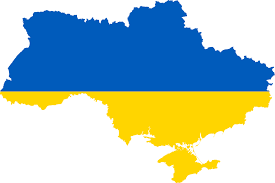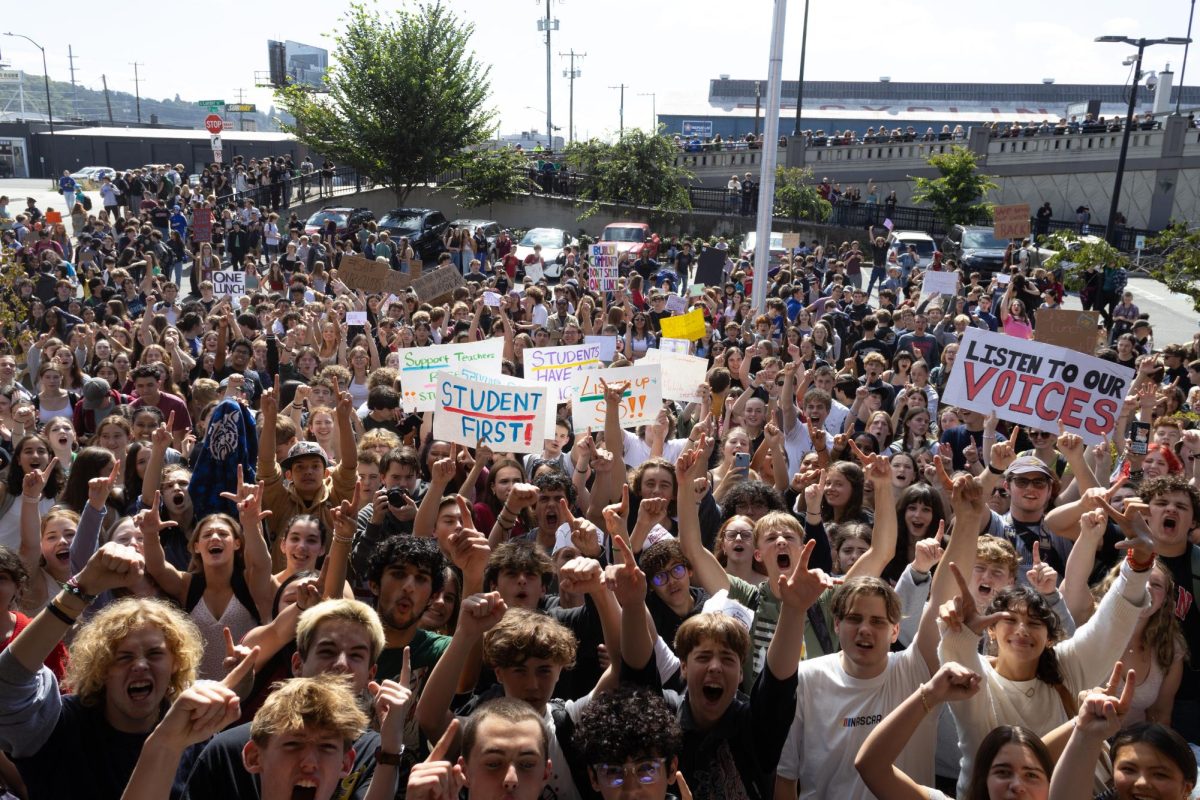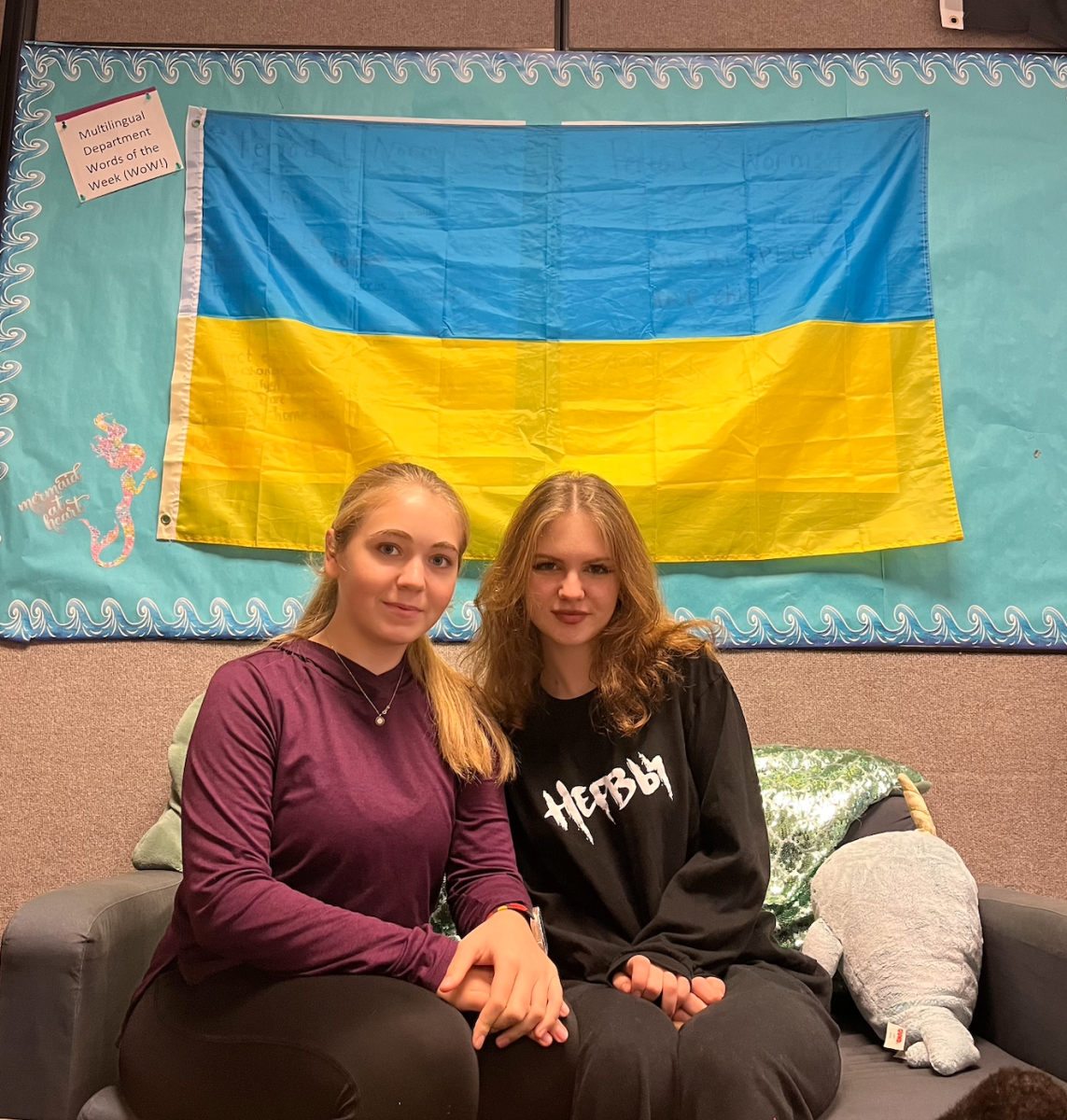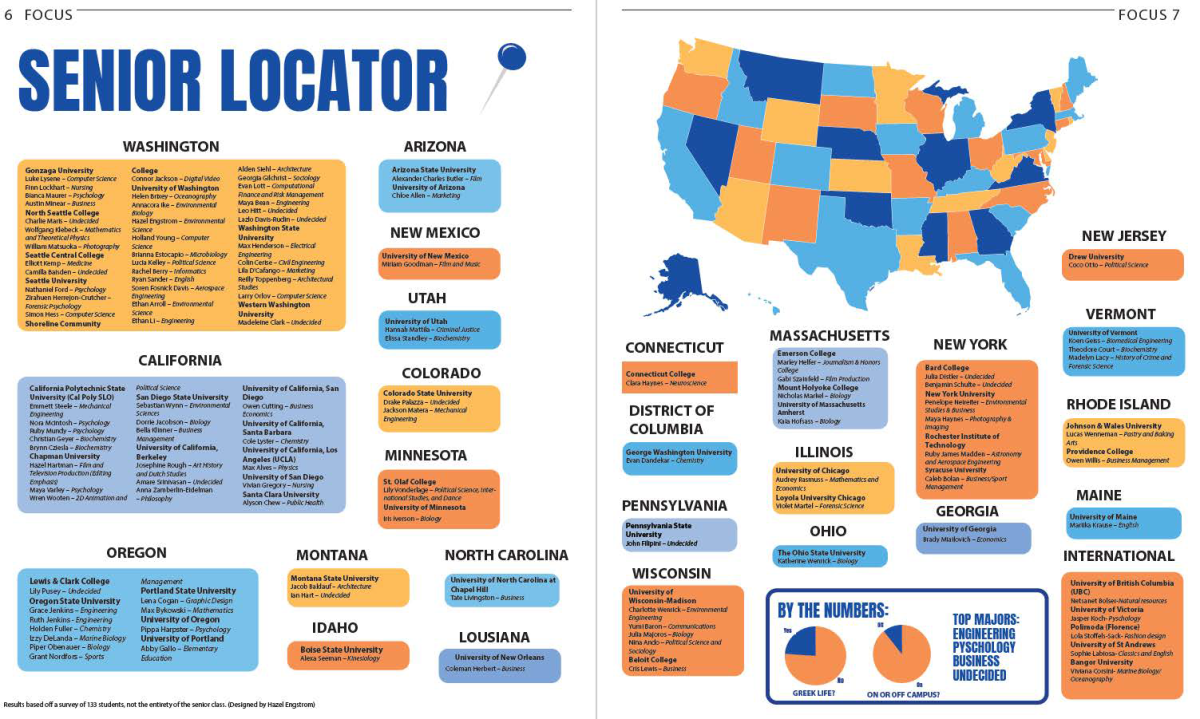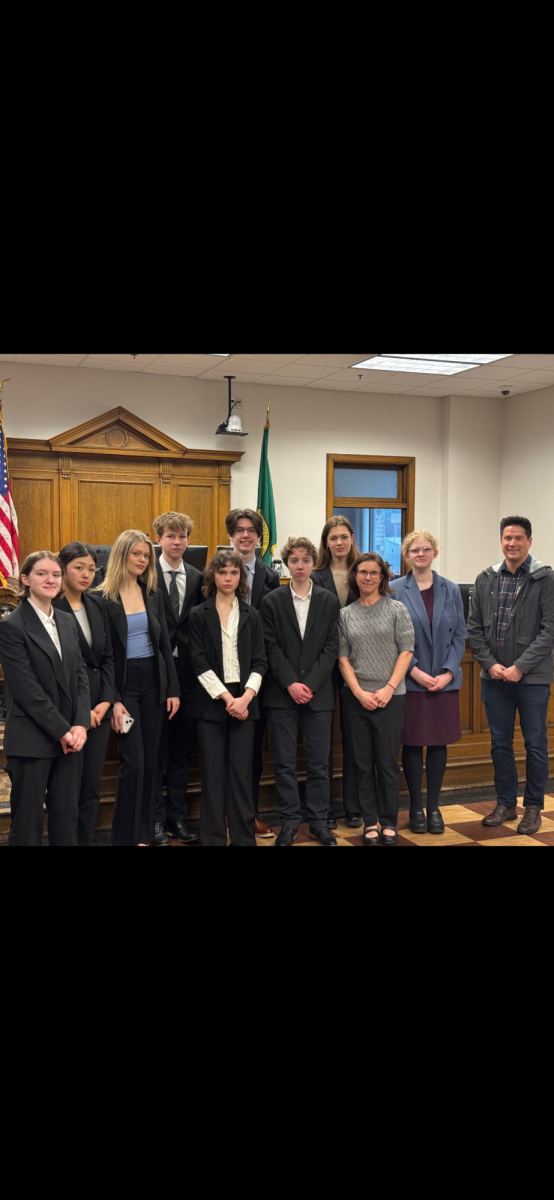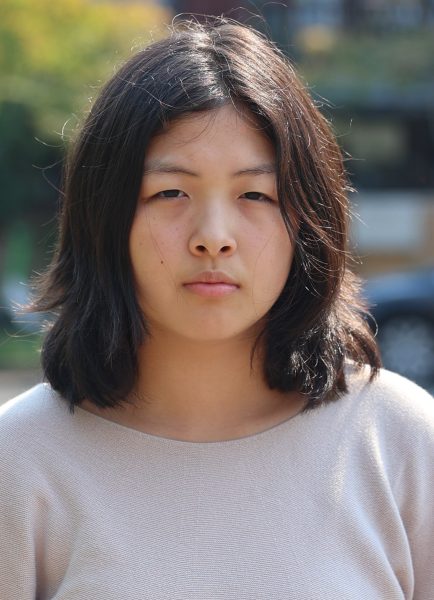Darkness filled the sky as plumes of smoke rose and enveloped the city. Fallen trees torn from the ground laid scattered. Buildings were left in ruins. Destruction from relentless bombings by Russian military jets was everywhere. Devastation wasn’t just in the physical destruction of the city’s rubble, but also the countless casualties suffered by families, mourning of loved ones and the heavy burden of psychological and mental trauma inflicted by war.
For many, the war in Ukraine is just another headline they see when perusing through emails or a search engine’s home page portal. But for high school students like Milana Vasilieva and Nika Zinchenko’s, it’s a harsh reality – a ceaseless fight for survival and a search for safety.
“I remember this day like all day, very, very clearly,” sophomore Milana Vasilieva said. “It was 4:34 p.m., our dogs started to bark and then [my family] woke up and heard a big ‘bam.’ It was a big bomb to our military city which we were staying at. My uncle and his family who lived a mile away from us were hurt and they escaped the military city running to the forest. I was very scared.”
Milana and her parents fled to Seattle in mid-2023, leaving behind her home, friends and extended family in Ukraine. Her uncle, grandparents, cousins – including one she considers a brother –remain there, holding onto the hope of joining her in the United States soon.
“My other family is still in Ukraine and I want them to come cause it’s dangerous there,” Vasilieva said. “For my brother [cousin], the war was very bad for his mental health because he saw big rockets [military aircraft] that drop bombs on the house and he is also in the military. Now he has a twitch in his eye and every night [when I was in Ukraine] he wakes up and says to my parents ‘go and run away!’”
Before fleeing to Seattle, Vasilieva and her family endured dangerous journeys in search of safety, living in constant fear and chaos. Surrounded by military aircraft in the sky, like a swarm of hornets ready to attack, the uncertainty of when or where bombs might drop was extremely stressful. Vasilieva and her family were on the constant move seeking refuge with no clear destination. All of this happened when Vasilieva was just 11 years old.
“My family and I drove to West Ukraine from Kyiv, which took two to three days,” Vasilieva said. “It was very dangerous and we had to go on other roads and we were like a pigeon cause we always go somewhere else. We were driving in the forest and stayed at another military town and saw many soldiers with big metal [missiles] and tanks. We were very afraid and every night there were big noises from air alarms and bombs from aircrafts.”
For many families, finding a new home doesn’t mean the journey is over. The emotional and physical toll of escaping a war zone lingers long after the immediate danger has passed. The fear, the grief of losing or being separated from loved ones and the uncertainty about what comes next continue to weigh heavily on them, even in their new “home.” For sophomore Nika Zinchenko, this reality is all too familiar.
“Before coming to the U.S., I lived in Germany for one and a half years,” sophomore Nika Zinchenko said. “Me, my mom, dad, brother and sister were able to live there but my older brother who is 28, couldn’t because he needs to serve in the Ukrainian military for the war.”
Adjusting to life in a new country wasn’t easy, especially after experiencing a war. Even in Germany, Zinchenko faced challenges as she tried to fit in. She did not receive the support from her school to help with the transition.
“They [kids] would surround me, and the kids would say ‘Russia is good,’’ Zinchenko said. “Also in school, we can’t use the translator on our phone. I just sat there in class. No way [to communicate], because I don’t know really good [German].”
However, coming to Ballard was a different experience for Zinchenko. For the first time since escaping war-torn Ukraine, she felt accepted and heard, and has been able to share her stories and express her feelings that had been difficult to voice before.
“I was always scared thinking about where we were going to go, our house, like where we will stay, making friends and going to school,” Zinchenko said. “I am happy when I come to Ballard because I’ve been able to make a lot of friends and I can talk to them like Milana [Vasilieva] who is also from Ukraine.”
The two students created the Slavic Club this fall, aiming to provide a space for students to connect, share their experiences, celebrate their culture and to bring awareness of the situation in Ukraine. They hope the club will become a welcoming environment for all.
“We want to communicate and want everyone in this club to find friends even if they don’t know Slavic language,” Zinchenko said. “Everyone can come.”
Like homing pigeons that roam the skies and seeking a place to rest, Vasilieva and Zinchenko’s journey continues. But in the moments when they feel lost or uncertain, they know that their family is always there. And in that, there is peace. There is hope. Peace, after all, is found in the presence of those who love and care for you, even when the world around you feels uncertain.
“In Ukraine, even when we were scared and afraid, I had my brother [cousin],” Vasilieva said. “We live together and everything, we did together and we’re like brother and sister. He made me very happy. Also, my mom, dad, my dogs, were with me all the time so I was able to be less scared.”
Zinchenko also reflected on the importance of family as well as her hopes to expand the Slavic Club.
“I really miss my brother who is in the Ukraine military and we [my family] want him to move here so we can be together,” Zinchenko said. “But I’m glad I have my mom, dad and brother, especially when we were scared when we came here trying to find a house. We were at the church for two months together before they found us a home. I’m happy at Ballard because of the friendly people and I want more people to join the Slavic Club.”
